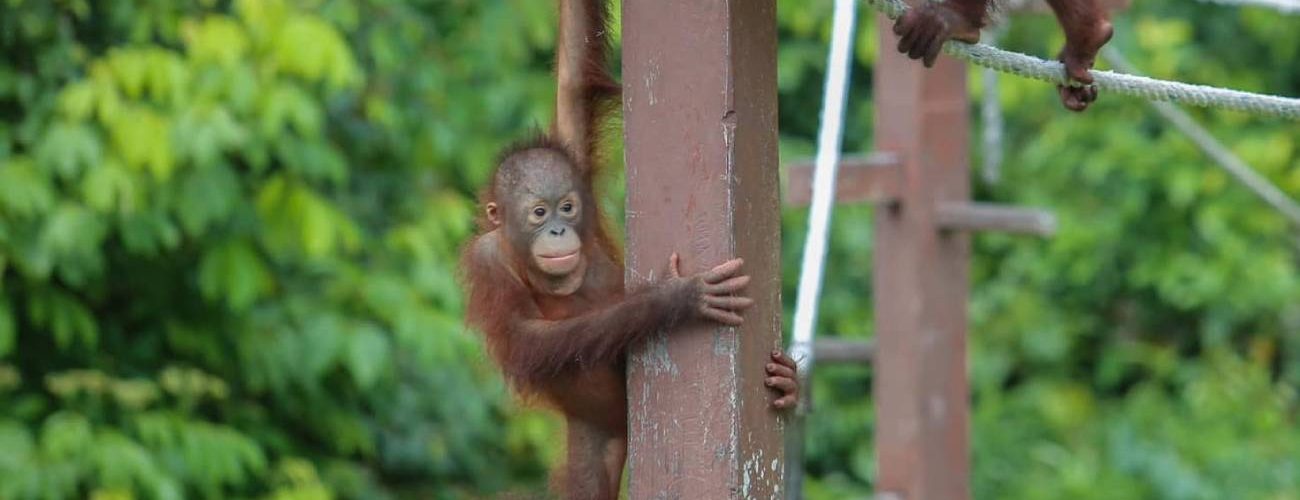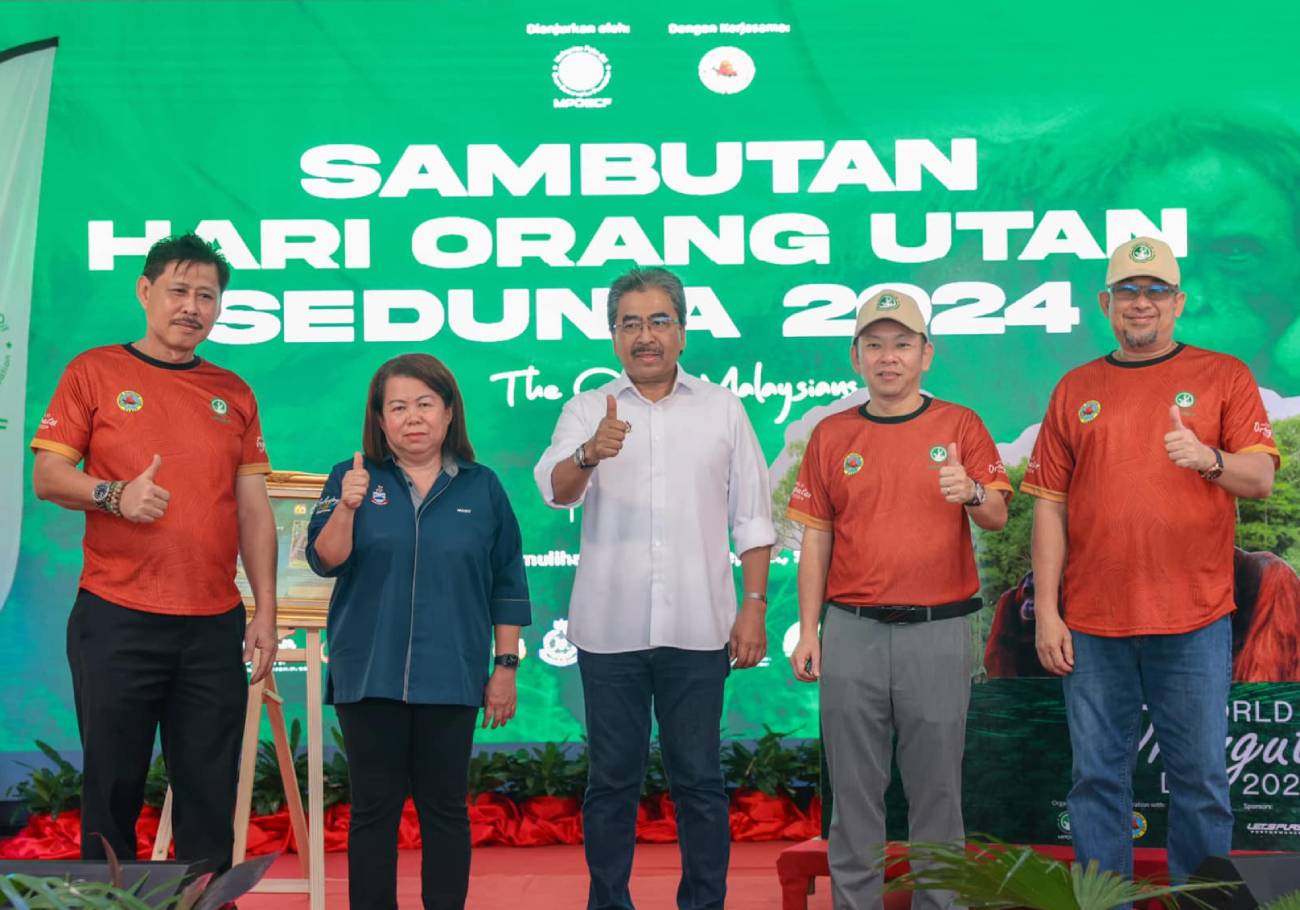
Orangutan Diplomacy, a conservation initiative aimed at preserving Malaysia’s iconic primates, has shifted its focus to an in-situ approach.
This decision follows consultations with NGOs, environmental activists, and industry stakeholders, ensuring that orangutans remain in their natural habitats within forests and High Conservation Value (HCV) areas of palm oil plantations.
A shift towards in-situ conservation of orangutan
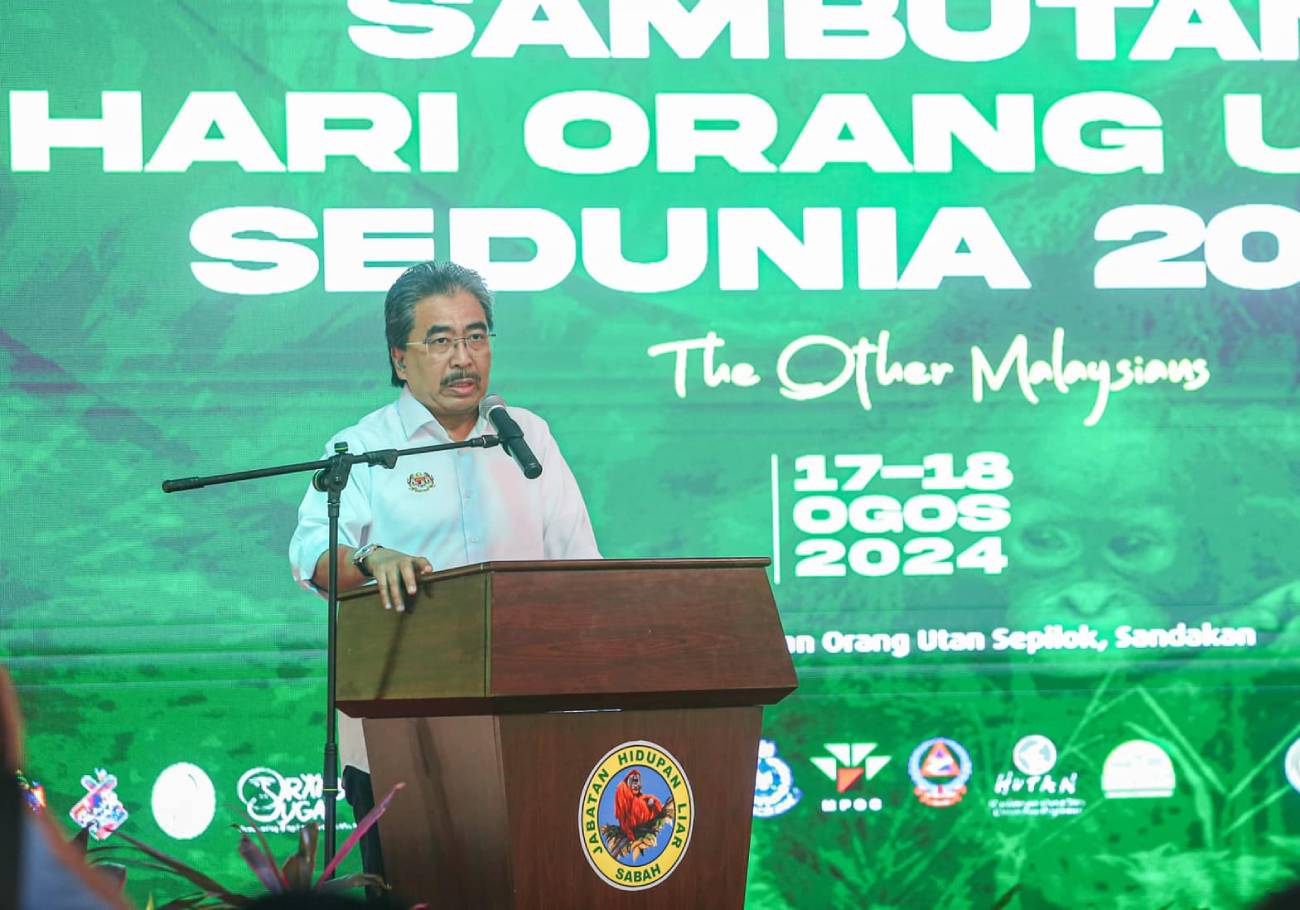
Minister of Plantation and Commodities, Johari Abdul Ghani, announced the pivot during the World Orangutan Day celebration in Sandakan.
“After discussions with stakeholders in the palm oil industry, we’ve decided that all conservation activities under the Orangutan Diplomacy programme will take place in their natural habitats,” Johari stated.
This approach allows orangutans to forage and breed freely, without interference from humans or plantation activities.
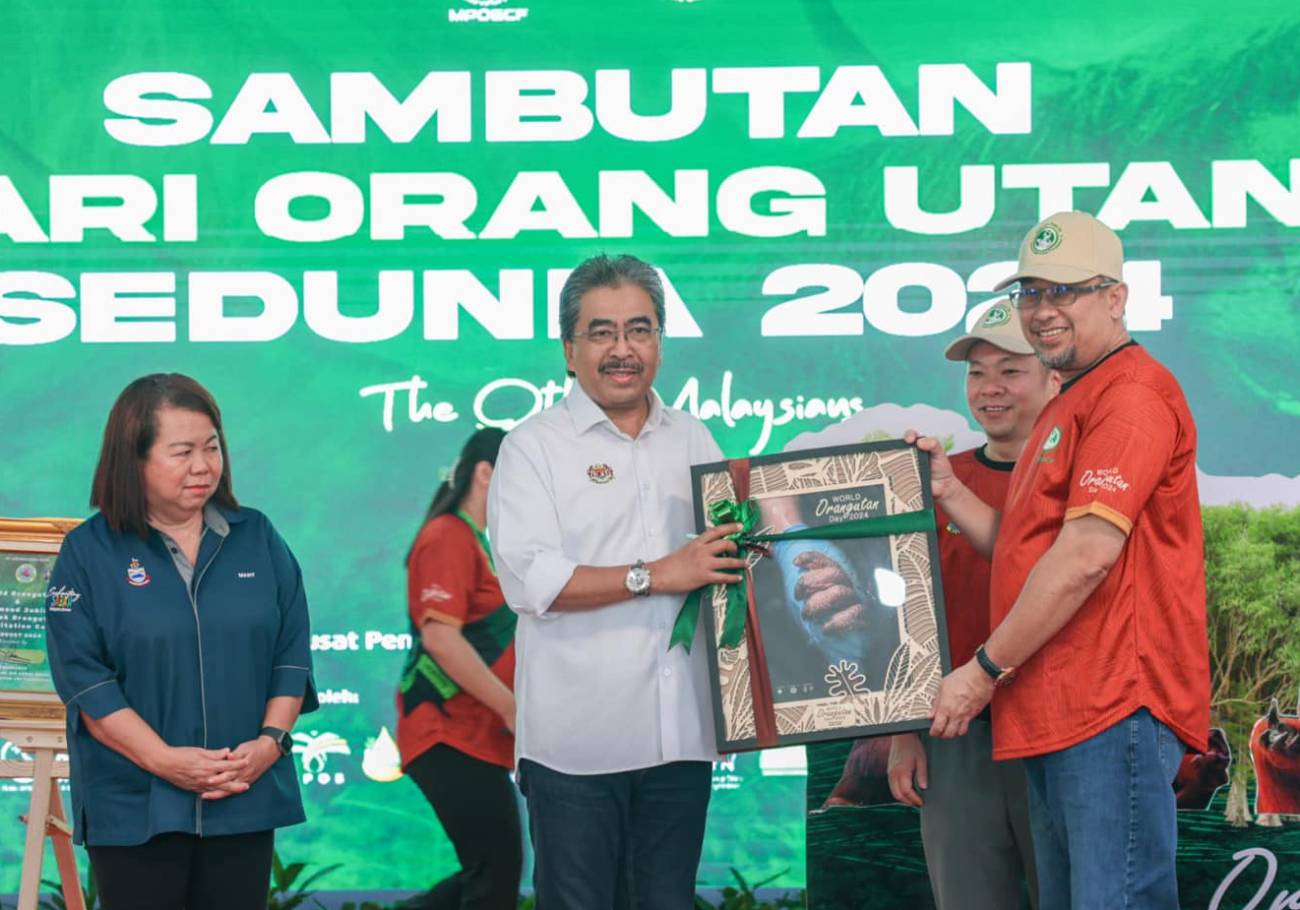
The shift to in-situ conservation, supported by the Malaysian Palm Oil Green Conservation Foundation (MPOGCF), reflects a commitment to maintaining biodiversity while addressing concerns from environmental groups.
“It’s true; we should keep the orangutans in their natural habitat. We need to protect the orangutans,” Johari emphasised.
Global support and sustainability commitment
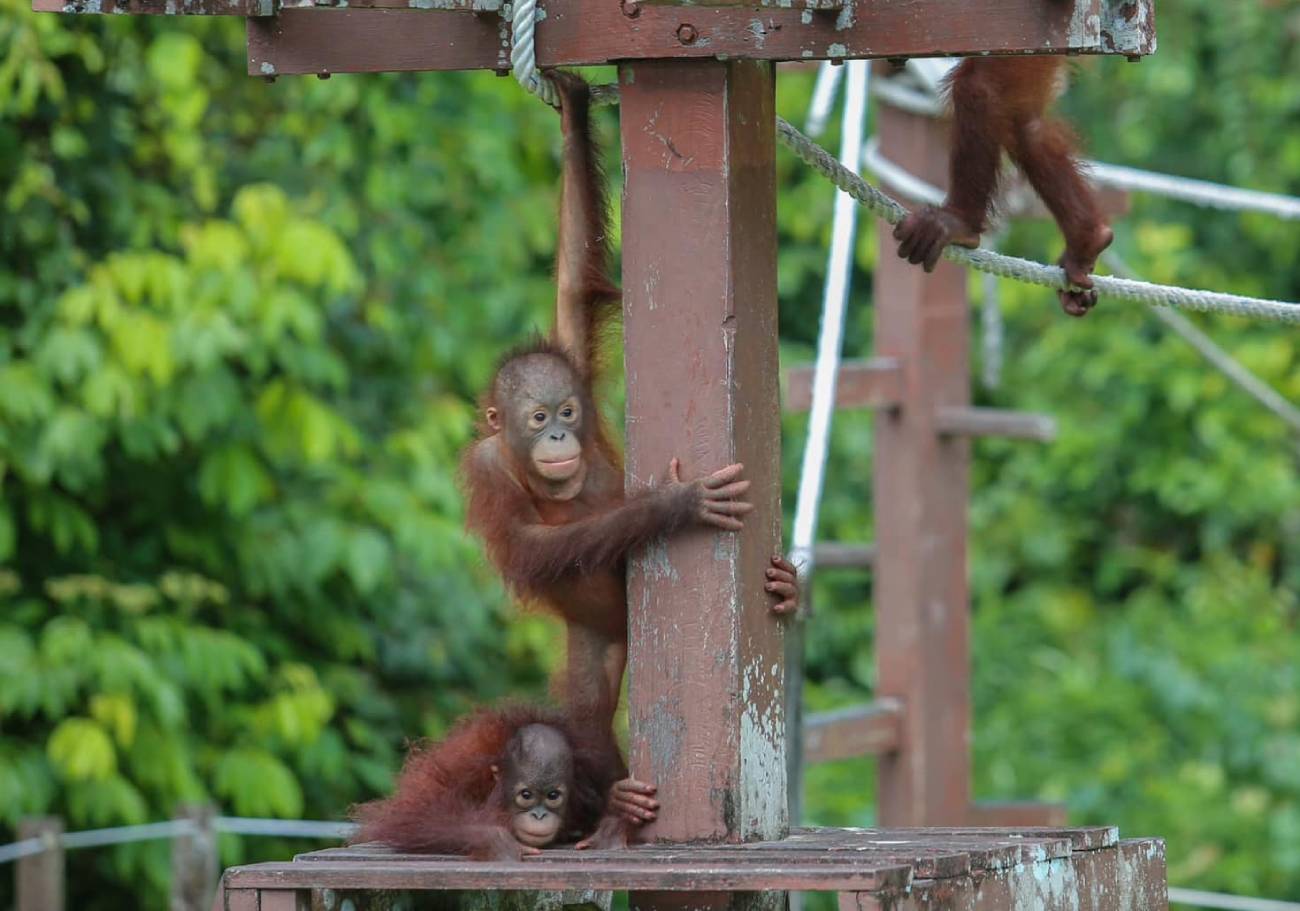
Under the revised Orangutan Diplomacy programme, international importers of Malaysian palm oil will have the opportunity to adopt orangutans.
The funds generated from these adoptions will be directed toward monitoring and protecting these animals in their natural environments.
“We’re collaborating with a team of experts to ensure the safety and well-being of these wild animals,” Johari explained.
The programme initially proposed gifting orangutans to major trading partners, a concept inspired by China’s successful “panda diplomacy.”
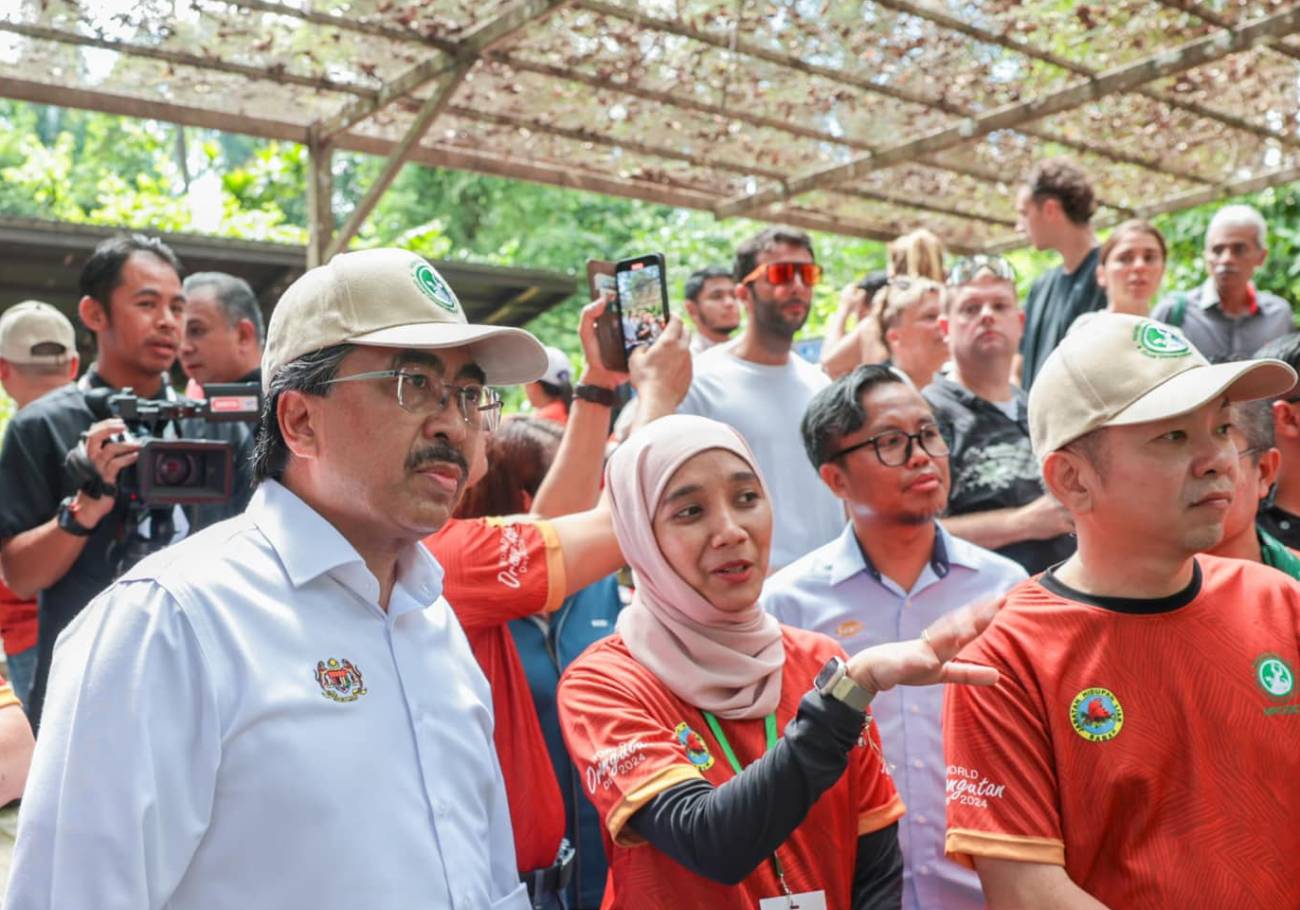
However, the in-situ approach aligns more closely with global conservation standards, while still fostering goodwill and raising awareness about Malaysia’s palm oil industry.
Johari also reaffirmed Malaysia’s commitment to sustainability, noting that the government has made Malaysian Sustainable Palm Oil (MSPO) certification mandatory for all planters.
“Without the MSPO certification, the government will not allow you to export,” he said, underscoring the importance of compliance with international sustainability standards.
In line with the government’s sustainability goals, Johari met with the EU ambassador to reiterate Malaysia’s dedication to eliminating deforestation and enhancing traceability in the palm oil industry.
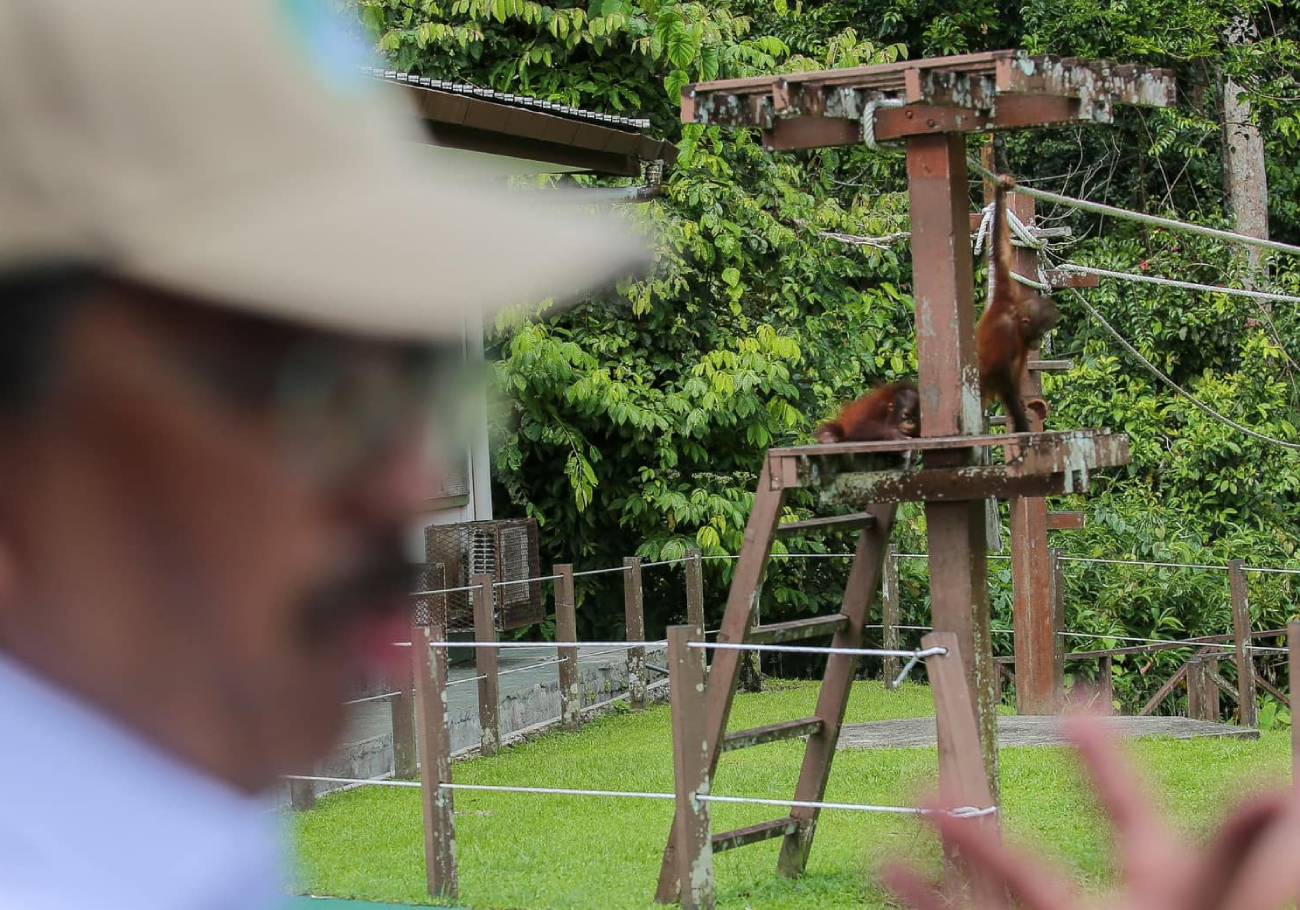
“Every palm oil product can be traced back to its source, whether an estate, mill, or refinery,” he said, emphasising the country’s efforts to maintain transparency and accountability.
Johari also highlighted the industry’s commitment to preserving Malaysia’s forest cover, which currently stands at 54%.
“There will be no more deforestation. Everyone must comply with the MSPO certification,” he affirmed.
As Malaysia continues to navigate the challenges of balancing economic growth with environmental conservation, initiatives like Orangutan Diplomacy represent a significant step forward.
By protecting these endangered primates in their natural habitats, Malaysia is not only safeguarding its biodiversity but also strengthening its position as a responsible global player in the palm oil industry.


